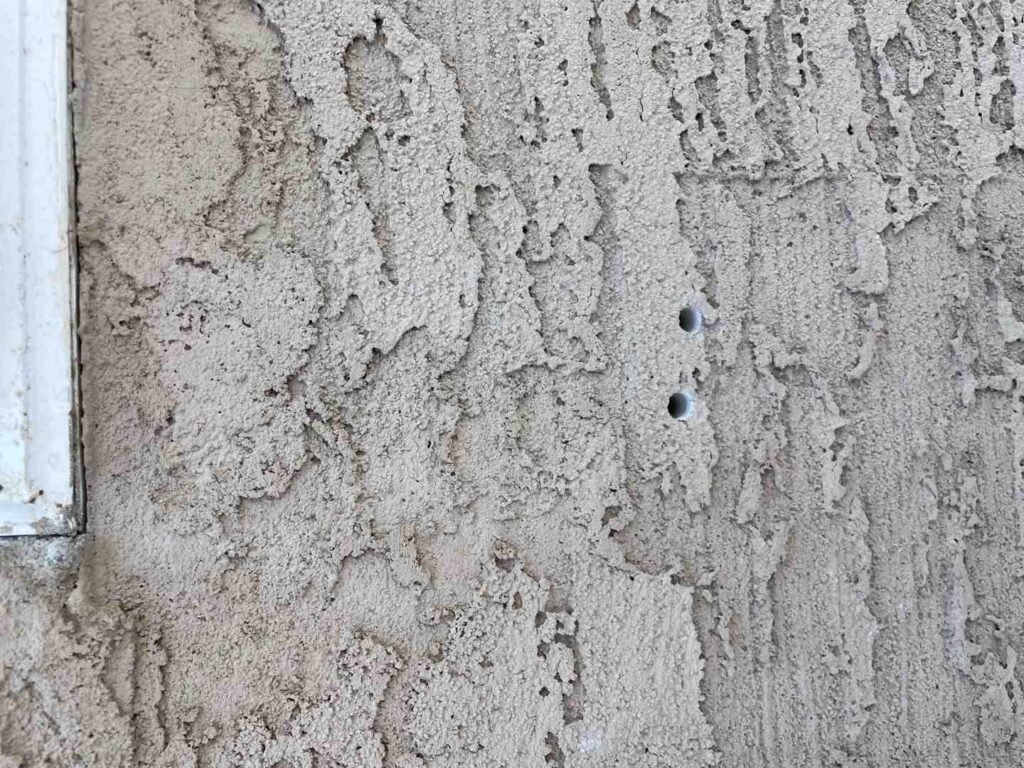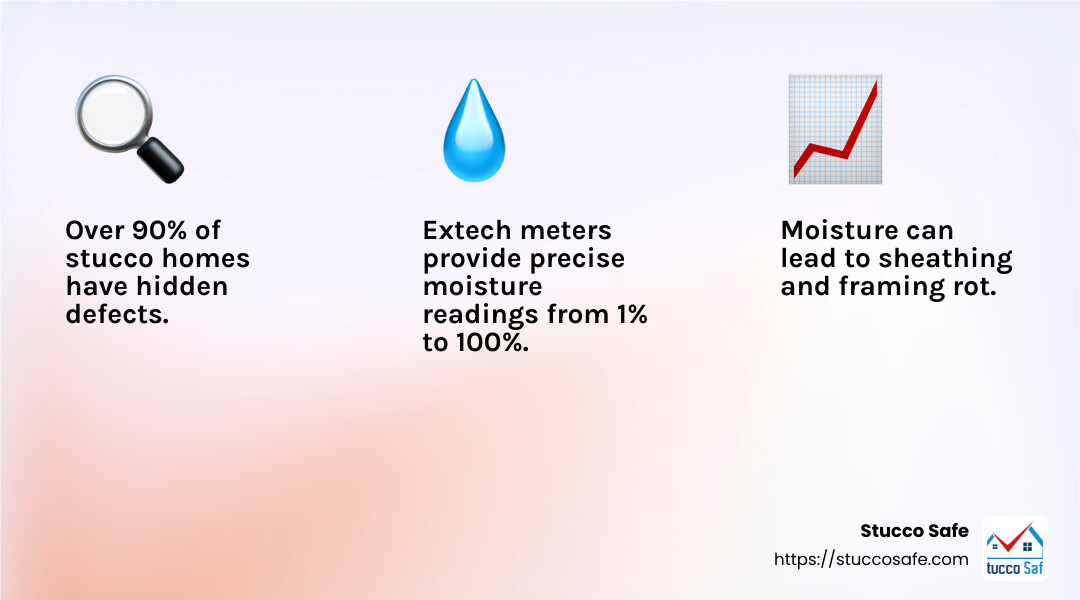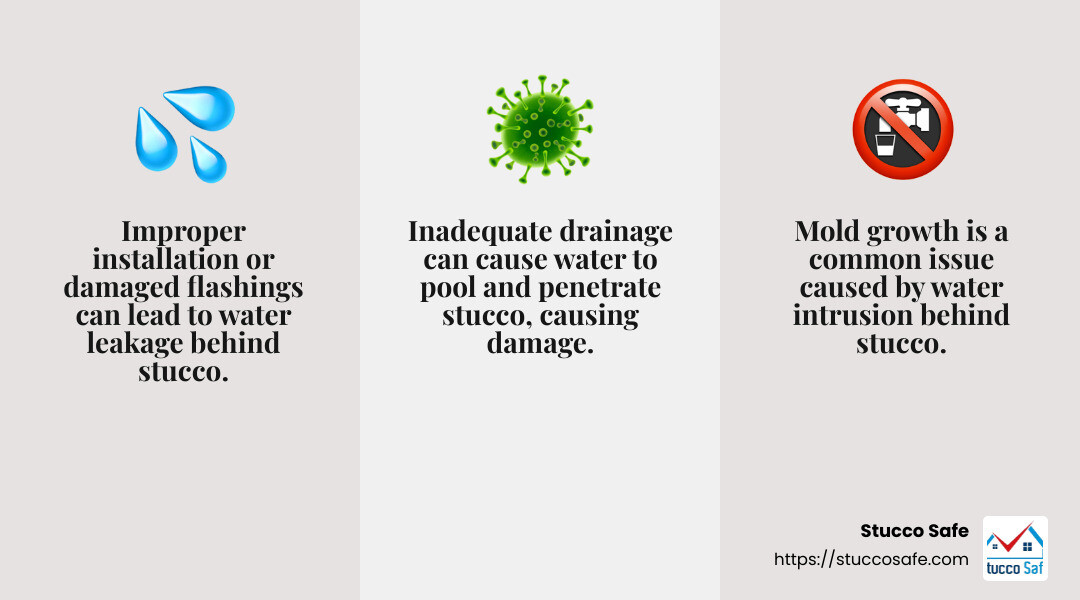Stucco home inspection NJ is a crucial service that helps homeowners uncover hidden moisture damage before it leads to costly repairs. Moisture can easily seep into improperly installed stucco, causing mold and compromising structural integrity. By conducting thorough inspections through methods like visual checks, moisture probing, and thermal imaging, professionals can detect these hidden threats early. Stucco testing is essential in identifying hidden moisture issues and ensuring the structural integrity of the home.
Understanding the inspection process is vital for homeowners like Helen in Southeastern Pennsylvania, who are keen to maintain property value and avoid unexpected repair costs when selling their homes.
I’m Gabe Kesslick, with years of experience in Stucco home inspection NJ. As a certified inspector, I specialize in identifying and resolving stucco issues, providing homeowners peace of mind when dealing with potential facade concerns.
Importance of Stucco Inspections
Stucco inspections are essential for maintaining the health and longevity of your home’s exterior. Stucco home inspection NJ can help uncover hidden problems that might not be visible to the naked eye. Let’s explore why these inspections are so crucial.
Hidden Problems
Many homeowners are unaware of potential issues lurking beneath their stucco facade. More than 90% of stucco applications installed in the past 15 to 30 years are estimated to be defective. These defects can lead to serious problems like leaks, mold growth, and even structural damage if left unaddressed.
Professional mold testing is crucial in identifying hidden mold growth that can compromise the structural integrity of the home.
Why are these problems hidden? The damage often occurs within the wall, making it invisible until it becomes severe. By the time signs like dark stains or mold spots appear, significant damage may already have occurred.
Moisture Testing
Moisture is a silent threat to stucco homes. When moisture seeps behind the stucco, it can cause the sheathing and framing to rot. Regular moisture testing is vital to catch these issues early.
Proper exterior insulation plays a crucial role in preventing moisture intrusion. Poorly installed exterior insulation can lead to severe structural problems, mold, and moisture intrusion. Therefore, certified inspections for properties with exterior insulation and finish systems are essential to ensure compliance with industry standards and protect investment values.
How is moisture detected? Inspectors use advanced tools like Delmhorst moisture meters, which provide precise readings from 1% to 40%.
Structural Integrity
The structural integrity of your home can be compromised if stucco issues are not addressed promptly. Water intrusion can weaken the wooden framing, leading to potential collapse.
Why is structural integrity important? Ensuring that the building envelope is intact prevents costly repairs and maintains the safety of the home. Regular stucco inspections help identify and rectify any potential threats to your home’s structure.
By staying ahead of these issues with regular inspections, homeowners can protect their investments and ensure their homes remain safe and sound.
Understanding Stucco Failure
Stucco failure can occur due to various reasons, including improper installation, inadequate maintenance, and exposure to harsh weather conditions. When water enters behind the stucco and gets absorbed into the sheathing and framing, it can cause significant damage to the building envelope. This can lead to leaks, mold growth, and structural damages, ultimately compromising the integrity of the stucco system. In some cases, stucco failure can be attributed to the lack of an adequate drainage system, allowing water to accumulate behind the stucco. Regular stucco inspections can help identify potential issues before they become major problems.
Types of Stucco Inspections
There are several types of stucco inspections, including visual inspections, invasive inspections, and non-invasive inspections. Visual inspections involve a thorough examination of the stucco exterior to identify signs of damage or deterioration. Invasive inspections involve drilling small holes into the stucco to insert a moisture probe and detect hidden moisture. Non-invasive inspections use specialized tools, such as thermal imaging cameras, to detect temperature differences that may indicate moisture presence. EDI certified stucco inspectors can perform these inspections to provide a comprehensive assessment of the stucco system.
Step-by-Step Guide to Stucco Home Inspection NJ
Visual Inspection Process
The first step in a Stucco home inspection NJ is a thorough visual examination. Inspectors will walk around the property, looking for signs of damage or wear. They focus on:
- Discoloration: Look for dark stains on the stucco surface, which can indicate moisture problems.
- Cracking: Inspect for any cracks or splits in the stucco, as these can be entry points for water.
- Flashing Issues: Check the flashings, which are metal or plastic barriers that direct water away from the house. Poorly installed or damaged flashings can lead to water intrusion.
Moisture Testing Techniques
After the visual inspection, moisture testing is conducted to identify hidden moisture problems. This involves:
- Thermal Imaging: A thermal imaging camera is used to detect temperature variations, revealing areas where moisture may be present behind the stucco.
- Moisture Meters: These devices measure moisture levels in the stucco. The Delmhorst moisture meters are preferred for their accuracy, providing readings from 1% to 40%.
- Moisture Probing: Inspectors may drill small, inconspicuous holes into the stucco to insert probes that measure moisture content within the substrate.
Stucco testing is crucial in identifying hidden moisture issues that can lead to significant structural damages if not addressed. Certified inspectors use sophisticated testing methods to ensure thorough and accurate assessments, protecting homeowners from costly repairs and potential health risks associated with mold and mildew.
Resistance Testing and Analysis
Finally, resistance testing is performed to assess the health of the building’s structure:
- Substrate Integrity: This involves checking the material behind the stucco to ensure it hasn’t been compromised by moisture.
- Framing Health: Inspectors evaluate the wooden framing for signs of rot or decay, which can weaken the structure.
- Building Envelope: The overall condition of the building envelope—the barrier that separates the interior from the exterior—is assessed to ensure it is intact and effective at preventing water intrusion.
By following these steps, a comprehensive stucco inspection can help identify potential issues early, allowing for timely repairs and maintenance. This proactive approach protects your home and preserves its value.
What to Expect from a Stucco Inspection Report
A stucco inspection report provides a detailed assessment of the stucco system, including any defects, damage, or potential issues. The report typically includes photographs, infrared imaging, and moisture mapping to illustrate the findings. The report may also include recommendations for repairs, maintenance, or further testing. A professional stucco inspection report can help homeowners, buyers, and sellers make informed decisions about the property. Certified inspectors, such as those certified by the Exterior Design Institute (EDI), can provide a comprehensive and accurate report.
Common Stucco Problems and Solutions
Stucco is a popular choice for home exteriors, but it can come with its own set of problems. Let’s explore some common issues and their solutions.
Water Leakage
Water leakage is one of the most prevalent issues with stucco systems. It often results from improper installation or damaged flashings. When water seeps behind the stucco, it can cause serious damage.
Solution: Ensure proper flashing installation and regular maintenance. During inspections, check for any missing or damaged flashings, especially around windows and doors. If leakage is detected, repair the flashings immediately to prevent further damage.
Mold Growth
Mold growth is a direct consequence of water intrusion. As water accumulates behind the stucco, it creates a damp environment perfect for mold.
Professional mold testing is crucial in identifying and addressing mold issues to prevent health risks and structural damage.
Solution:Regular inspections can catch moisture problems early. If mold is found, it must be removed professionally to prevent health risks. After removal, address the source of moisture to prevent recurrence.
Inadequate Drainage
Poor drainage is another common culprit behind stucco problems. Without proper drainage, water can pool and eventually penetrate the stucco, leading to leaks and structural damage.
Solution: Install proper drainage systems, such as gutter extensions and downspouts, to direct water away from the foundation. Regularly inspect these systems to ensure they function correctly.
By addressing these common stucco problems with timely solutions, homeowners can significantly reduce the risk of costly repairs and maintain the integrity of their homes.
Benefits of Regular Stucco Inspections
Regular stucco inspections can provide numerous benefits, including early detection of potential issues, prevention of costly repairs, and maintenance of the stucco system. Inspections can also help identify areas of moisture intrusion, which can lead to mold growth and structural damage. By addressing these issues promptly, homeowners can avoid costly repairs and maintain the integrity of their stucco exterior. Additionally, regular inspections can provide peace of mind for homeowners, knowing that their stucco system is in good condition.
Choosing a Stucco Inspection Company
When choosing a stucco inspection company, it’s essential to consider several factors, including the company’s experience, certifications, and reputation. Look for companies with EDI certified stucco inspectors who have experience in performing commercial stucco inspections. Check online reviews and ask for referrals to ensure the company provides high-quality services. A reputable company will provide a comprehensive inspection report, including recommendations for repairs and maintenance. By choosing the right company, homeowners can ensure that their stucco system is properly inspected and maintained.
Frequently Asked Questions about Stucco Home Inspection NJ
How much should a stucco inspection cost?
The cost of a Stucco home inspection NJ can vary depending on the size of your home and the complexity of the inspection. Typically, prices range from $495 for smaller homes to $1,595 or more for very large homes. It’s crucial to remember that the cost of an inspection is a small price to pay compared to the potential hidden repair needs that can arise from undetected issues. Investing in a thorough inspection can save you from spending thousands of dollars on unexpected repairs down the line.
How do you test stucco for inspection?
Testing stucco involves a combination of techniques to ensure a comprehensive evaluation. The process starts with a visual inspection to look for signs of discoloration, cracking, and flashing issues.
Next, moisture testing is conducted using specialized tools like moisture probes. These probes are inserted through small holes drilled into the stucco to measure moisture levels in the substrate. High-quality probes, such as Delmhorst moisture meters, provide accurate readings and help identify moisture problems lurking behind the surface.
Finally, resistance testing is performed to assess the integrity of the substrate and framing. This involves checking the health of the building envelope to ensure it remains structurally sound.
Why does stucco fail?
Stucco failure often stems from two main issues: application failure and inadequate materials.
Application Failure: This occurs when the stucco is not applied correctly. Common mistakes include improper installation of flashing and sealants, which can lead to water infiltration. Homes built between 1993 and 2006 are particularly vulnerable due to outdated building codes during that period.
Inadequate Materials: Using subpar materials can compromise the effectiveness of the stucco system. Without the right materials, the stucco may lack the necessary durability and resistance to weather elements, leading to premature failure.
Regular inspections and maintenance are key to preventing these failures and ensuring the longevity of your stucco exterior. By identifying and addressing issues early, you can protect your home and avoid costly repairs.
Conclusion
When it comes to protecting your home, a Stucco home inspection NJ is an essential step. At Stucco Safe, we pride ourselves on providing top-notch inspection services that go beyond the basics. Our certified inspectors use advanced forensic testing methods to uncover hidden issues that might otherwise go unnoticed.
Certified Inspectors: Our team is composed of highly trained professionals who are certified by recognized institutions like the Exterior Design Institute. This means you can trust us to deliver accurate and reliable results. We know the stakes are high when it comes to detecting moisture and structural problems, and our expertise ensures you get a thorough assessment.
Forensic Testing Methods: We use state-of-the-art tools and techniques to perform our inspections. From thermal imaging to moisture probing, our methods are designed to pinpoint even the smallest vulnerabilities in your stucco system. This comprehensive approach allows us to identify potential issues before they become costly problems.
Choosing Stucco Safe for your inspection needs means investing in peace of mind. Our detailed reports provide a clear picture of your stucco’s condition, helping you make informed decisions about repairs and maintenance.
Don’t leave your home’s health to chance. Contact us today to schedule your inspection and safeguard your investment.



